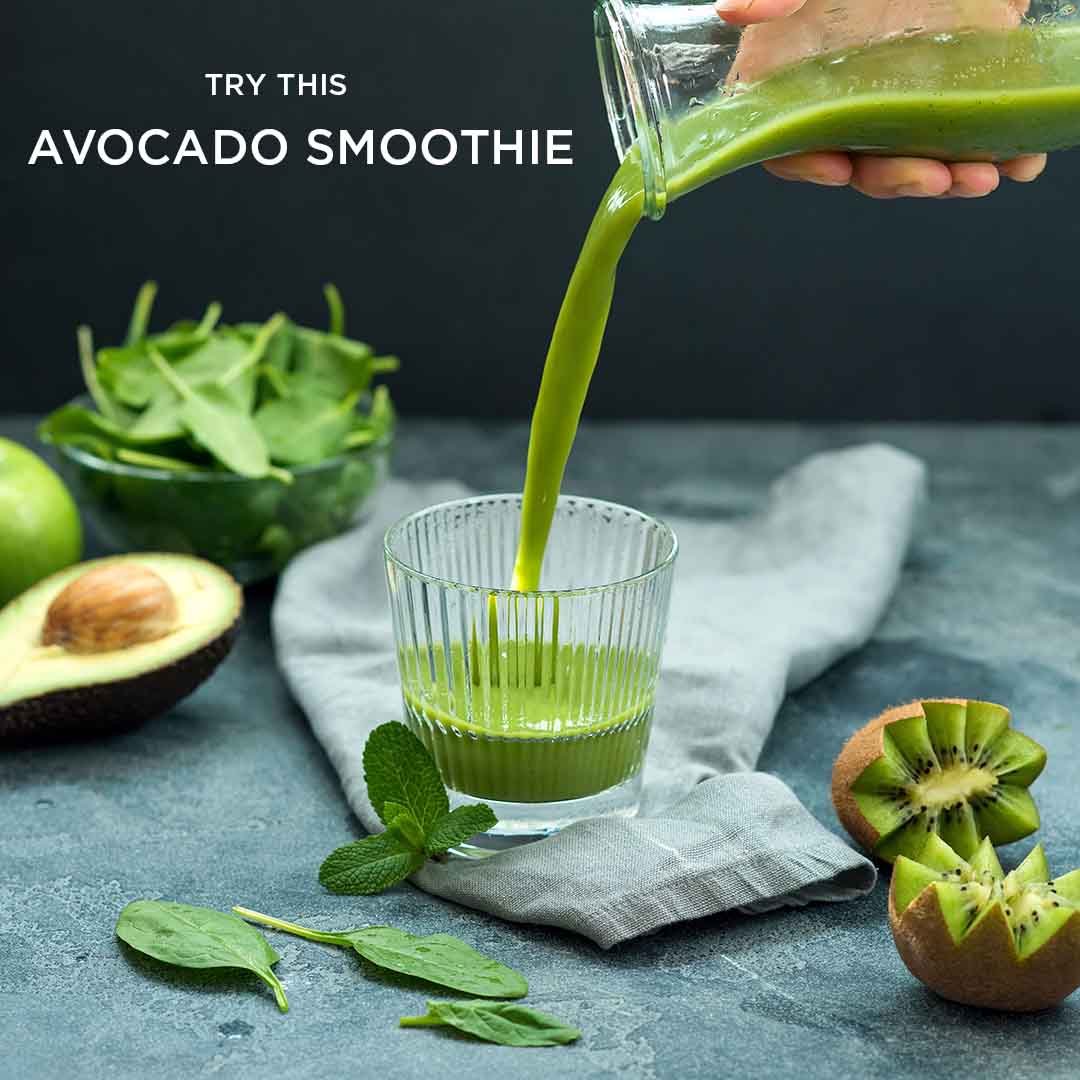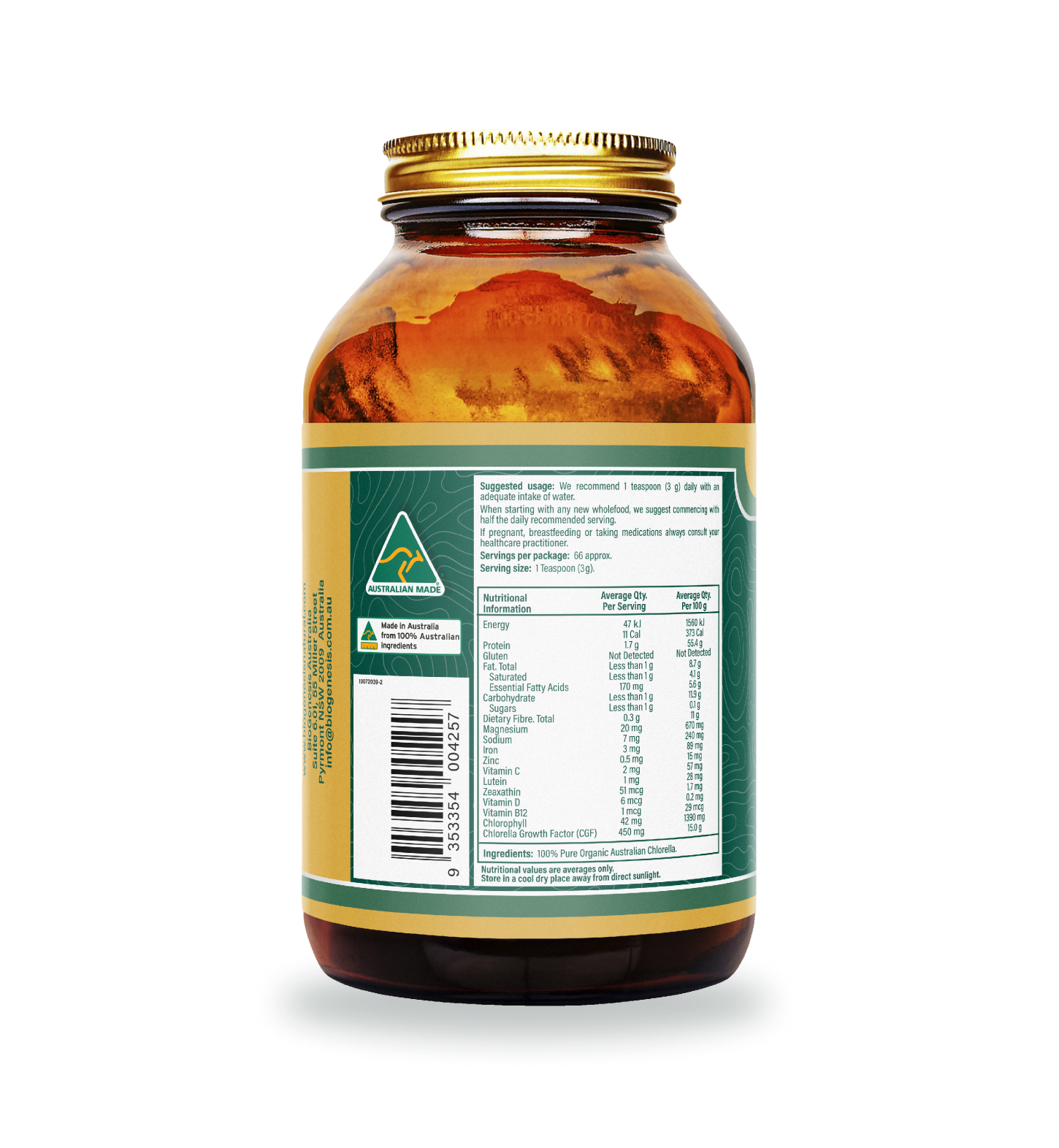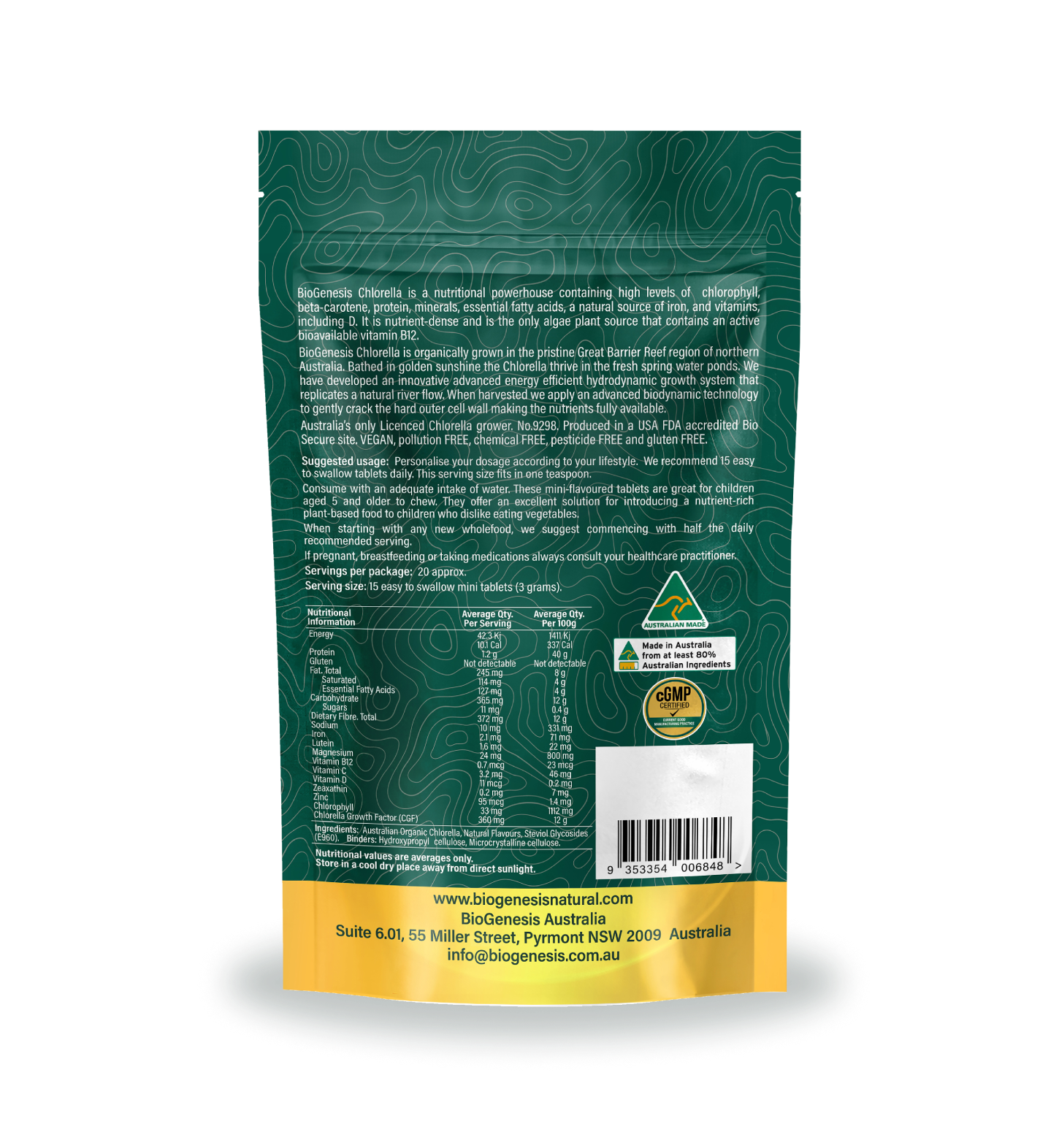
How Chlorella Helped With My Low Iron Levels
by Colin McGregor
Chlorella is a hot new superfood taking the world by storm, and for good reason! It boasts a long list of health benefits with hundreds of studies supporting its effectiveness. While it may be a new mainstream health topic, it's certainly not new to earth! Chlorella has been around for 2 billion years and was discovered by humans in the early 19th century. It's been thoroughly proven to be safe and beneficial for a number of uses.
Chlorella can be consumed to support general health and one lesser known function of chlorella specifically relevant to women's health is its ability to improve iron levels. Women have higher iron requirements than men since they lose iron through menstruation, pregnancy and lactation, which means they have a greater risk of developing a deficiency. Exacerbating this issue is the fact that women on average consume less food overall, and more specifically, less foods rich in iron. Those following vegetarian and vegan diets in particular may struggle to meet their iron needs. Iron deficiencies can lead to experiencing fatigue, dizziness, weakness, and shortness of breath among other symptoms., which is sadly prevalent within studied populations. A recent study by Columbia University in the United States has shown that a whopping 30% of the women sampled had a mild to severe iron deficiency.
While iron supplements are commonly prescribed for iron deficiency, they are known to have potential side effects including stomach aches, cramps, nausea, and constipation. Chlorella side effects appear to be less common, and milder. Supplement sources of iron also may not be as bioavailable as the iron within chlorella. Nutrients such as vitamin C, prebiotics, and probiotics increase the absorption of iron, and chlorella happens to be rich in both complementary vitamin C, and prebiotic fiber.
An additional reason why chlorella could be considered a superior alternative to traditional iron supplements is due to its antioxidant content and anti-inflammatory properties. Inflammation of the intestine can decrease iron absorption, and the promising possibility of chlorella's dual action to mitigate this damage while providing a highly bioavailable iron source is truly unbeatable!
To put it simply, chlorella is one of the most nutrient-dense wholefoods and its composition is far more complex than alternative synthetic options created in a laboratory setting. Nature has made this superfood packed with protein, vitamins B12 and D, iron, vitamin C, fiber, omega 3 , 6 and 9 fatty acids and many other vitamins and minerals that work synergistically to improve human health in a number of ways. While it's certainly possible to combat low iron with dietary modifications or supplement use, chlorella is likely the simplest way to ensure adequate intake of highly bioavailable iron, and it has the added benefit of lowering inflammation and improving gut-health to further support this use. This superfood truly has no comparable alternative, and the only thing you'll regret is not trying it sooner!




